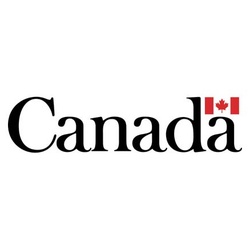
Closed
The Low Carbon Economy Fund - Low Carbon Economy Challenge
Last Update: October 27, 2025
Canada
Supports projects reducing GHG emissions using low-carbon technologies
Grant and Funding
At a glance
Funding available
Financing goals
Reduce the ecological footprint
Renovate your business/factory
Eligible Funding
- Minimum amount : 1,000,000 $
- Up to 75% of project cost
Timeline
- Open Date : January 1, 2023
- Closing date : February 8, 2024
Eligible candidates
Eligible Industries
- Manufacturing
- Administrative and support, waste management and remediation services
Location
- Canada
Legal structures
- All legal structures
Annual revenue
- All revenue ranges
Organisation size
- All organization sizes
Audience
- Indigenous Peoples
- Rural or Northern Residents
- Canadians
Overview
The Low Carbon Economy Challenge Fund leverages Canadian innovation to reduce greenhouse gas emissions and foster clean growth. It supports projects that deploy proven low-carbon technologies resulting in significant GHG reductions. Eligible activities must lead to direct and immediate emissions reductions that go beyond existing regulations and must be primarily for the applicant's or their partner's own use.
Activities funded
- Implementation of energy efficiency upgrades in fixed and mobile equipment.
- Improvement of building envelopes, such as insulation, windows, and doors.
- Deployment of clean electricity or low-carbon fuel production systems for internal use.
- Installation of heat recovery, fuel switching, or combined heat and power (cogeneration) systems.
- Waste diversion and landfill gas capture initiatives, as well as modifications to reduce industrial process emissions.
- Carbon capture, storage, or utilization projects (excluding enhanced oil recovery).
Eligibility
- The applicant must be located and operating in Canada.
- Eligible applicants include provinces, territories and their entities; regional, local, or municipal governments and their entities; Indigenous recipients (including Indigenous for-profits); public sector organizations or boards; research, academic, or educational institutions; Canadian not-for-profit organizations; and Canadian for-profit businesses of all sizes.
- The project must lead to significant and incremental reductions in greenhouse gas (GHG) emissions and must be sufficiently prepared for implementation.
- The applicant and project must meet all specific program requirements, including project location, type of activity, and usage criteria as defined by the program guidelines.
Who is eligible?
- Provincial governments and provincial agencies
- Territorial governments and territorial agencies
- Regional, local, or municipal administrations and their entities (regardless of population size)
- Indigenous communities and organizations (including First Nations, Métis, Inuit, and Indigenous for-profit organizations)
- Public sector organizations or boards (e.g., school boards, health authorities)
- Educational and research institutions (public or private colleges, universities, and research institutes)
- Canadian non-profit organizations (such as municipal/provincial/territorial associations, professional or sector organizations)
- Canadian for-profit businesses (small, medium, and large enterprises established in Canada)
Who is not eligible
In the current grant context for the Low Carbon Economy Challenge, the guidelines do not explicitly list specific types of companies or industries that are ineligible based on their status or main activity. The restrictions are more focused on the nature of the projects being proposed rather than the industry status of the applicants.
Eligible expenses
- Fees for contractors performing project activities.
- Purchase or leasing of equipment or capital assets directly required for the project.
- Construction, refurbishment, or improvement of project-related assets.
- Expenses for materials and supplies necessary for project implementation.
- External professional and management services (e.g., accounting, communications, translation, audits, technical and environmental reviews, measurement and reporting).
- Project-related travel, accommodation, and meeting expenses (subject to federal guidelines and caps).
- Hospitality costs linked to Indigenous ceremonial offerings (meals, refreshments, traditional items).
- Monetary honoraria to Indigenous Elders or Knowledge Keepers participating in the project.
- Indirect administrative or overhead costs, including licenses, utilities, insurance, IT maintenance, and office support (capped at 20% of the federal contribution and must be project-related and pre-approved).
- Planning and evaluation costs, such as engineering, surveying, supervision, and testing (capped at 5% of the federal contribution and subject to approval).
- Printing, production, and distribution costs for joint federal communications and project signage.
- Incremental salaries and benefits for technical or project-focused employees (capped at 2% of the federal contribution and subject to certain conditions and pre-approval).
- Training expenses for employees on new technologies, equipment, software, or project-specific systems.
- Provincial Sales Tax (PST), Goods and Services Tax (GST), or Harmonized Sales Tax (HST) not eligible for reimbursement or credits.
Eligible geographic areas
- All provinces and territories in Canada
- Projects must be located within Canada
Selection criteria
- Greenhouse Gas (GHG) Merit (70 points): Assessed on cost-effectiveness of GHG reduction, including federal funding required per tonne of CO2 equivalent reduced in 2030 (50 points) and cumulatively to 2050 (20 points).
- Alignment with Net-Zero Objectives by 2050 (15 points): Degree of project alignment with Canada's long-term decarbonization goals and its role in supporting net-zero trajectories.
- Co-benefits (15 points): Consideration of other significant project benefits, such as clean growth, environmental improvements, Indigenous leadership, or health and safety.
- Project Risk and Mitigation: Assessment of identified project risks and proposed mitigation strategies; projects with high risks and inadequate mitigation may not be selected.
How to apply
1
Review Eligibility Criteria and Guidelines
- Read the Low Carbon Economy Challenge Applicant Guide thoroughly to understand eligibility criteria and assessment process.
- Ensure your project aligns with the objectives of reducing GHG emissions and complies with all eligibility requirements.
2
Prepare Application Documents
- Prepare a detailed project proposal that includes the project description, expected GHG reductions, and cost-effectiveness analysis.
- Compile necessary documents like financial statements, project timelines, and evidence of technological capability.
3
Submit Application
- Access the application portal on the Low Carbon Economy Fund website.
- Complete the application form with accurate information and upload all required supporting documents.
- Submit the finalized application before the deadline on February 8, 2024.
4
Acknowledgment of Submission
- Receive a confirmation email acknowledging receipt of your application.
- Retain this confirmation for future reference and follow-up.
Additional information
- Approval of funding is not guaranteed until a formal funding agreement is signed, even after receiving approval in principle.
- Applicants must provide clear, complete, and detailed information as applications will be evaluated as submitted; only critical clarifications may be requested.
- Regular reporting is mandatory throughout the project lifecycle, including semi-annual progress and a final report upon project completion.
- Environmental, Indigenous, and diversity impacts of the project will be reviewed as part of the assessment process.
Contacts
lcef-fefec@ec.gc.ca
Canada
Apply to this program
Frequently Asked Questions about the The Low Carbon Economy Fund - Low Carbon Economy Challenge Program
Here are answers to the most common questions about the The Low Carbon Economy Fund - Low Carbon Economy Challenge. This section explains what the program is, how much funding is available, eligibility requirements, application deadlines, and other important details to help you determine if this grant is right for your business.
What is the The Low Carbon Economy Fund - Low Carbon Economy Challenge?
How much funding can be received?
What is the deadline to apply?
Who is eligible for the The Low Carbon Economy Fund - Low Carbon Economy Challenge program?
What expenses are eligible under The Low Carbon Economy Fund - Low Carbon Economy Challenge?
Who can I contact for more information about the The Low Carbon Economy Fund - Low Carbon Economy Challenge?
Where is the The Low Carbon Economy Fund - Low Carbon Economy Challenge available?
Apply to this program
More programs like this

Grant and FundingClosed
Industrial Research Assistance Program (IRAP) – AI Assist
National Research Council Canada (NRC)Supports Canadian SMEs in adopting and integrating advanced AI solutions

Tax CreditsOpen
Clean Technology Manufacturing (CTM) Investment Tax Credit (ITC)
Canada Revenue Agency (CRA)Incentivize Canadian companies to invest in clean technology

Partnering and CollaborationGrant and FundingOpen
Strategic Innovation Fund (SIF)
Innovation, Science and Economic Development Canada (ISED)Strategic Innovation Fund supports transformative Canadian economic investments
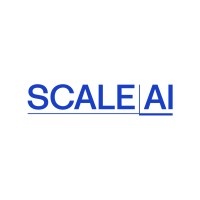
Grant and FundingOpen
AI-Powered Supply Chains Cluster (Scale AI)
Global Innovation Clusters (GIC)Funding to enhance supply chains with AI
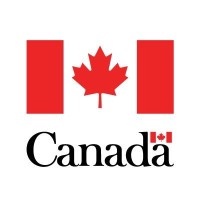
Grant and FundingClosed
Green Industrial Facilities and Manufacturing Program (GIFMP) — Industrial Facility Track
Natural Resources Canada (NRCan)Support for the implementation of energy efficiency and energy management solutions

Grant and FundingOpen
NRC IRAP – Support for clean technology
National Research Council Canada (NRC)Funding for Canadian SMEs advancing innovative clean technology commercialization

Grant and FundingClosed
ISED — Artificial intelligence (AI)
Innovation, Science and Economic Development Canada (ISED)Supports testing innovative AI prototypes for Canadian government needs

Grant and FundingOpen
Global Innovation Clusters
Innovation CanadaFinancial assistance to work in collaboration on innovation projects
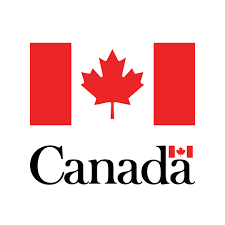
Grant and FundingOpen
IP for Business
Canadian Intellectual Property Office (CIPO)Intellectual property training, tools and expertise
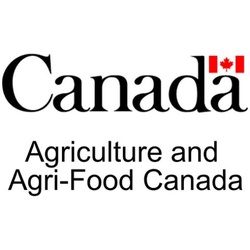
Grant and FundingClosed
African Swine Fever Industry Preparedness Program (ASFIPP) - Welfare Slaughter and Disposal Stream
Agriculture and Agri-Food Canada (AAFC)Supports pork sector preparedness for African swine fever emergencies
Sign up to our platform to access the The Low Carbon Economy Fund - Low Carbon Economy Challenge information sheet for free
Get access to 4,000+ programs, practical guides, personalized alerts, and an AI assistant to support your grant applications.